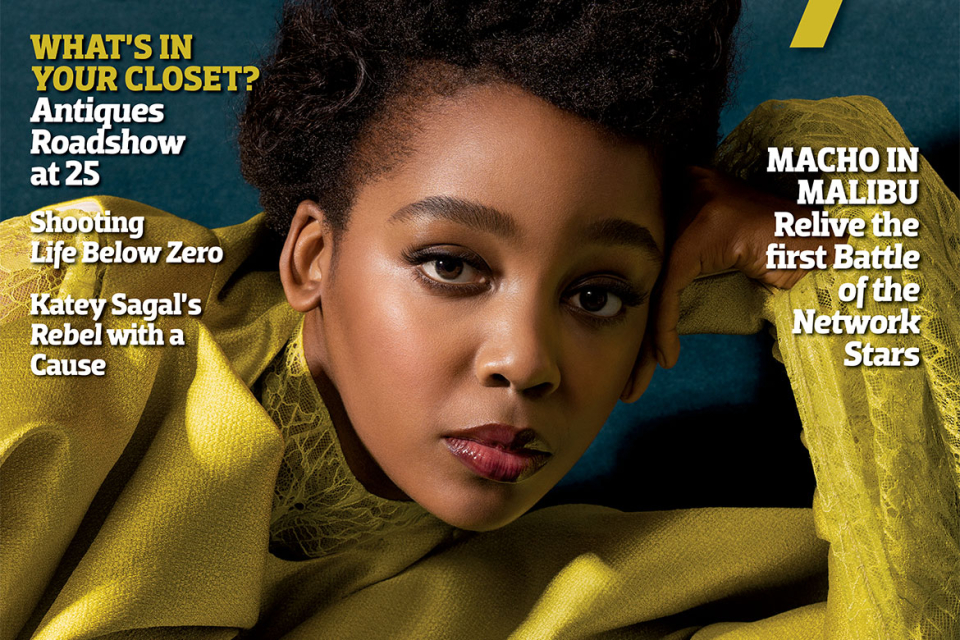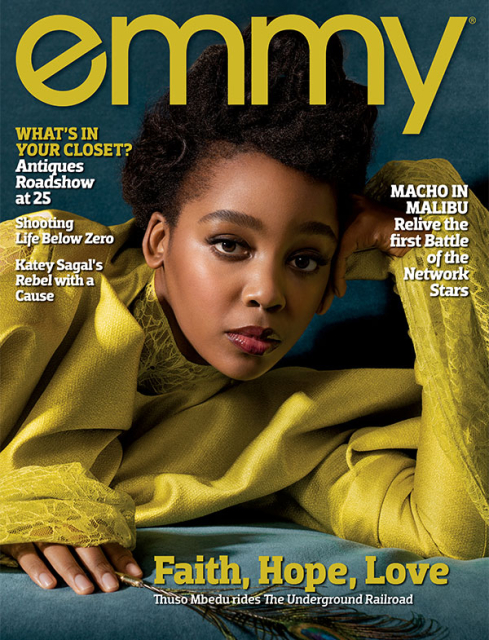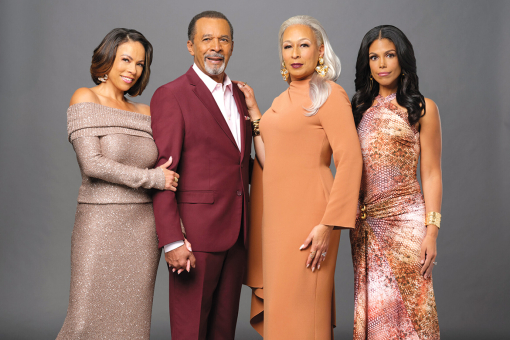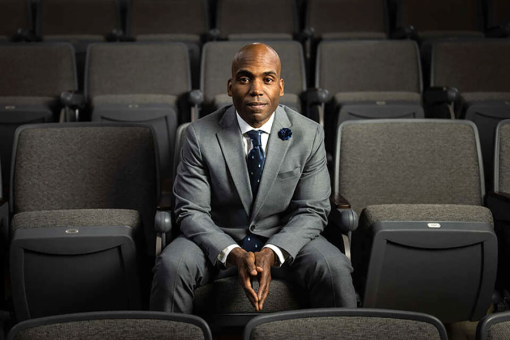There's a moment in The Underground Railroad that is so visceral it may linger in your mind long after you see it.
Cora (Thuso Mbedu), a formerly enslaved runaway, walks slowly toward her estranged mother (Sheila Atim) and slashes her throat with a surgical blade.
Watch our exclusive interview with Thuso Mbedu, behind the scenes at her emmy cover photo shoot.
This vivid, stunning dream sequence — one of many in Barry Jenkins's sprawling adaptation of Colson Whitehead's Pulitzer Prize-winning novel — illuminates Cora's inner turmoil. Her mother, Mabel, fled the Georgia plantation where they were both enslaved, leaving 11-year-old Cora to suffer alone as a Black child in pre-Civil War America.
Mbedu still thinks about that arresting scene today, months after the 10-episode limited series — dropping in full on May 14 on Amazon Prime — wrapped its 115-day shoot in Georgia last September. "She has this deep wound when it comes to Mabel that she doesn't want to face," the actress says on a call from Los Angeles. "Because if she has to face [it], it means reliving that rejection and abandonment."
She speaks candidly and fluidly as a woman with myriad memories of her own, some of them painfully similar to Cora's story. Born in South Africa as Apartheid was ending, Mbedu was just four years old when her own mother died of a brain tumor, leaving her and her sister to be raised mostly by their grandmother.
"My mother knew that she was going to die, so she would take us to visit our grandmother so that we would get used to living with [her]," Mbedu says. "Prior to meeting my grandmother, my whole world was my mother and sister. What made sense in my life was my mother. So, whenever our mother would leave us with our grandmother, she'd completely disappear. That pain of being ripped apart from her is a scar that I've carried through my life."
So it's surprising that she pursued acting, a profession known both for constant rejection and for requiring an actor to draw on the most difficult points in her own life to humanize a character.
It wasn't even her first career choice. Growing up, Mbedu wanted to become a dermatologist so she could help herself and others who suffer from allergies and skin ailments.
"Every December, my face would be swollen," she recalls with a laugh. "I would be allergic to God knows what. I had to bathe with special soap. It was horrible. I remember moments in high school — I'd walk around sucking on my lower lip because I was trying to hide how big it was." But when she discovered acting in her teens, her dreams pivoted: "It was a wrap on that."
While acting gave her a creative outlet, books allowed her to mentally escape the mundanity in her hometown of Pietermaritzburg.
"Its nickname is the Sleepy Hollow because not a lot happens in that little town," Mbedu says. "I knew there was much more to life than what was currently presented to me. I applied to universities that were four, five hours away from home because I wanted to see a life beyond that."
She eventually chose the University of the Witwatersrand in Johannesburg, where she studied physical theater and performing arts management. "For me, Johannesburg was a steppingstone to the rest of the world," she says.
But in 2016, after graduating with honors and moving full speed ahead on her career, Mbedu had what she calls "my darkest year." Casting briefs had stopped coming in, and she was unable to find work for six months. As unpaid bills began piling up, she realized she had yet to process another trauma.
Two years earlier, her grandmother had passed away. "What made me realize I hadn't dealt with my grandmother's death was [what happened to] one of my friends from high school," she recalls. "Her mother was murdered in 2015, and that sent me off the rails a little bit."
At 24, Mbedu says she "made friends with this cough syrup" that made her hallucinate. "I'd lost all hope. The only reason I didn't take my life in 2016 was my sister. Everything that I've gone through, every person that I've lost, my sister has also lost. So, it wouldn't be fair for me to add my body to all the losses my sister has faced."
Around that time, she'd gotten an audition and planned to give it her all. But her hopes were crushed once again when she saw during her callback that another actress had been invited. "I was going to call my agent and tell her that I was too tired," she says. "I had no fight in me left. I was not going to do the callback. If they wanted to give the role to someone else, they could do that."
But before she could place that call, her agent told her she'd booked the role.
It was Winnie, the lead in the South African drama series Is'Thunzi, and it would earn Mbedu two International Emmy nominations. That trajectory of success, following years of hard work and heartbreak, inspired the inspirational message she has tattooed under her collarbone. "It says, 'Faith, Hope, Love,'" she says. "Because without faith in God, without hope... Oh my gosh, I would not wish it to anyone."
All these experiences and more, housed eternally in her memory, inform her staggering portrayal of Cora in The Underground Railroad.
She shared a few relevant memories with Jenkins between auditions for the role, during what she calls "an informal conversation" with him in L.A. amid his Oscar campaign for If Beale Street Could Talk (Jenkins was nominated in 2019 for his Beale Street screenplay; in 2017 he was nominated for directing and writing Moonlight and won for the screenplay).
"I had never seen or heard of this young woman," he says on the phone from L.A., where he was putting the finishing touches on the VFX shots in the series. "Her [audition] tape came through the system. I was like, 'I am sitting across from the woman. This is her.'"
As excited as Mbedu was when Jenkins called to offer her the role, self- doubt soon returned. "I went through emotions of, 'I would really like to perform this character,'" she remembers. "'Not just for my career, but for my personal growth.' But I also had moments where I'd be like, 'I don't actually think that I am good enough to perform this type of story.'"
Soon, audiences will get to see what Jenkins saw in Mbedu's Cora, the vulnerability, humanity and soul of a woman desperately carving her own path under seemingly insurmountable circumstances. A woman who's been through hell and is trying to rouse herself from the ashes all on her own — just like Mbedu. ...
For the rest of the story, pick up a copy of the latest emmy magazine HERE
This article originally appeared in its entirety in emmy magazine, Issue No. 4, 2021












